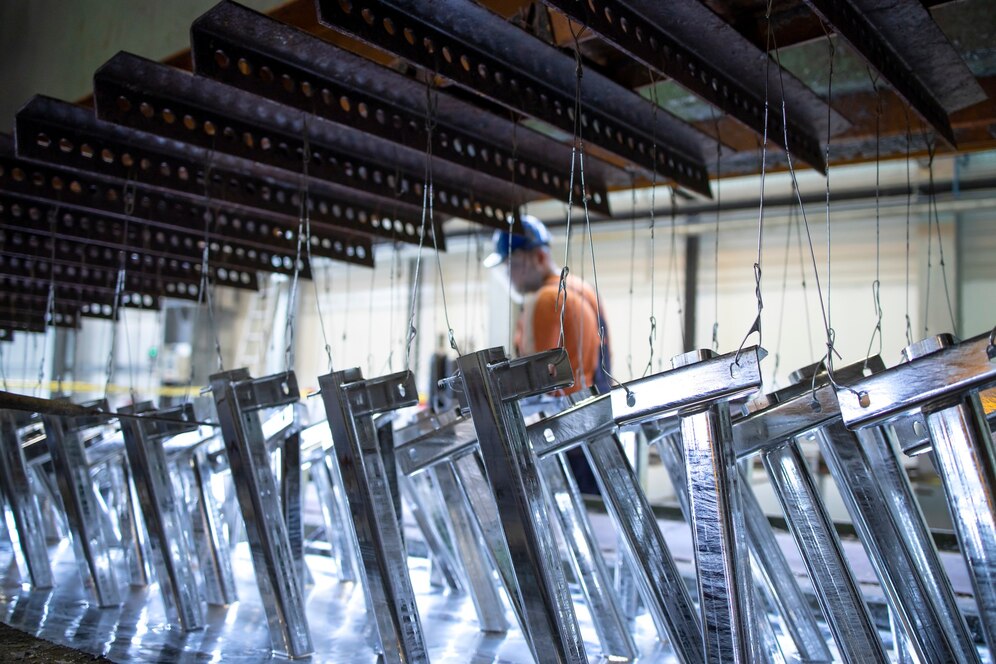The problem for industries operating in corrosive environments such as oil and gas, wastewater treatment, and chemical manufacturing is hydrogen sulfide (H₂S). It is that characteristic rotten-egg-smelling gas, which has corrosive effects on materials, brings with it severe health hazards, and leads to environmental consequences. This is where Aluminum Supplier Philippines comes in as front-liners in addressing such issues through innovative approaches toward H₂S-induced problems. This article talks about the effects of H₂S on materials, the promise of aluminum alloys, and customized strategies by aluminum suppliers in the Philippines to counter this problem.
Challenges Posed by H2S
Corrosion and Material Degradation
H₂S is corrosive, especially when humid or wet as it reacts with moisture to form sulfuric acid. This speeds up the degradation of several materials which leads to equipment failures, loss of structural integrity, and high maintenance costs. Conventional metals, like in the case of steel, become more susceptible and hence cannot be used without some alternatives to their construction or protective coatings to save them from H₂S exposure.
Health and Safety Risks
At extremely high levels, H2S is toxic; therefore, it poses a health threat for workers in industries where it is present. Long-time exposure even at lower levels could lead to respiratory problems and irritation of the eyes. It is therefore critical to have robust and non-reactive materials in H2S environments as safety assurance to employees.
Environmental Impact
H2S release into the atmosphere results in environmental pollution and odor complaints. For this reason, industries have been actuated to adopt sustainable practices and reduce emissions, which would call for H2S-resistant materials to minimize the impact on the environment as well.
Aluminum as a Solution for H2S Challenges
Resistance to Corrosion
Aluminum alloys have an inbuilt resistance against corrosion because of a naturally formed oxide layer over the metal, which by itself protects the aluminum almost from external elements. Certain grades of aluminum, such as the 5000-series and 6000-series, have increased resistance to sulfide-induced corrosion that enables the application of such materials in H2S-rich environments.
Lightweight and Durable
Lightweight aluminum is an excellent choice among industries looking to reduce the weight of equipment without losing strength or durability. One of the main advantages is with applications such as pipelines that may incur substantial costs in transport and installation due to material weight.
Recyclability and Sustainability
Aluminium has a feature of the best recyclability among most materials. Herein lays the growing trend for sustainability. Products in H₂S-prone industries, such as aluminum, can be recycled and repurposed, which will, in turn, reduce waste with an overall positive environmental effect.
Solutions Offered by Aluminum Supplier Philippines
Tailored Alloy Selection
Aluminum suppliers Philippines establish customizable alloy solutions for diverse industries. They recommend marine-grade aluminum alloys for offshore applications where H₂S and saline exist. Such selection enhances H₂S resistance with environmental stressor resistance.
Protective Coatings and Treatments
Such coatings help as additional barriers against H₂S attack, hence increasing the durability of aluminum structures as well as reducing their maintenance costs. Suppliers usually offer aluminum products with special advanced protective coatings or treatments to improve corrosion resistance. Anodizing and powder coating are common and popular treatment processes for improving durability with enhanced aesthetics.
Fabrication Expertise
Among fabricators who supply aluminum, some offer extra services, including custom cutting, welding, and shaping of aluminum parts for manufacture. Such additive features ensure that products are wholly tailored to the exact specifications demanded by the environment in which the products are exposed to H₂S conditions. Thus, improving efficiency and minimizing wasted material.
Technical Support and Consultation
Reputable aluminum suppliers in the Philippines also provide technical assistance to any industry challenged with specific problems concerning H₂S. From material selection teaching to installation guidance, their expertise ensures that their customers will apply the best possible solutions according to their operational needs.
Applications of Aluminum H2s-Prone Environments
Oil and Gas
Aluminum is used in petroleum and natural gas in pipelines, storage tanks, and offshore platforms that are exposed to H₂S. Its lightweightness and corrosion resistance make it a cheaper substitute for traditional materials such as steel.
Wastewater and Treatment Plans
Hydrogen sulfide is typically known to exist in wastewater treatment plants, creating a highly corrosive environment for equipment and infrastructure. These conditions lead to premature failures of equipment, including aluminum components such as covers, pipes , or tanks. There is an economical solution of replacement of maintenance due to the long life of aluminum components.
Chemical Processing Plants
H₂S is usually found at high concentration levels within chemical plants, which makes it important for materials to withstand chemical and thermal stresses. Thus, for such environments, aluminum stands out among the few materials that resist corrosion and can maintain structural integrity even at elevated temperatures.
Key Takeaway
The corrosive characteristic of hydrogen sulfide makes it troublesome in different industries. They offer different exciting solutions to aluminum suppliers in the Philippines from custom alloys and protective coatings to technical support and fabrication. With these applications, industries may address H₂S problems more effectively with safety, sustainability, and economic efficiency. As the demands keep on growing for resilient and environmentally friendly materials, aluminum’s contribution to fights against H₂S will only increase.



